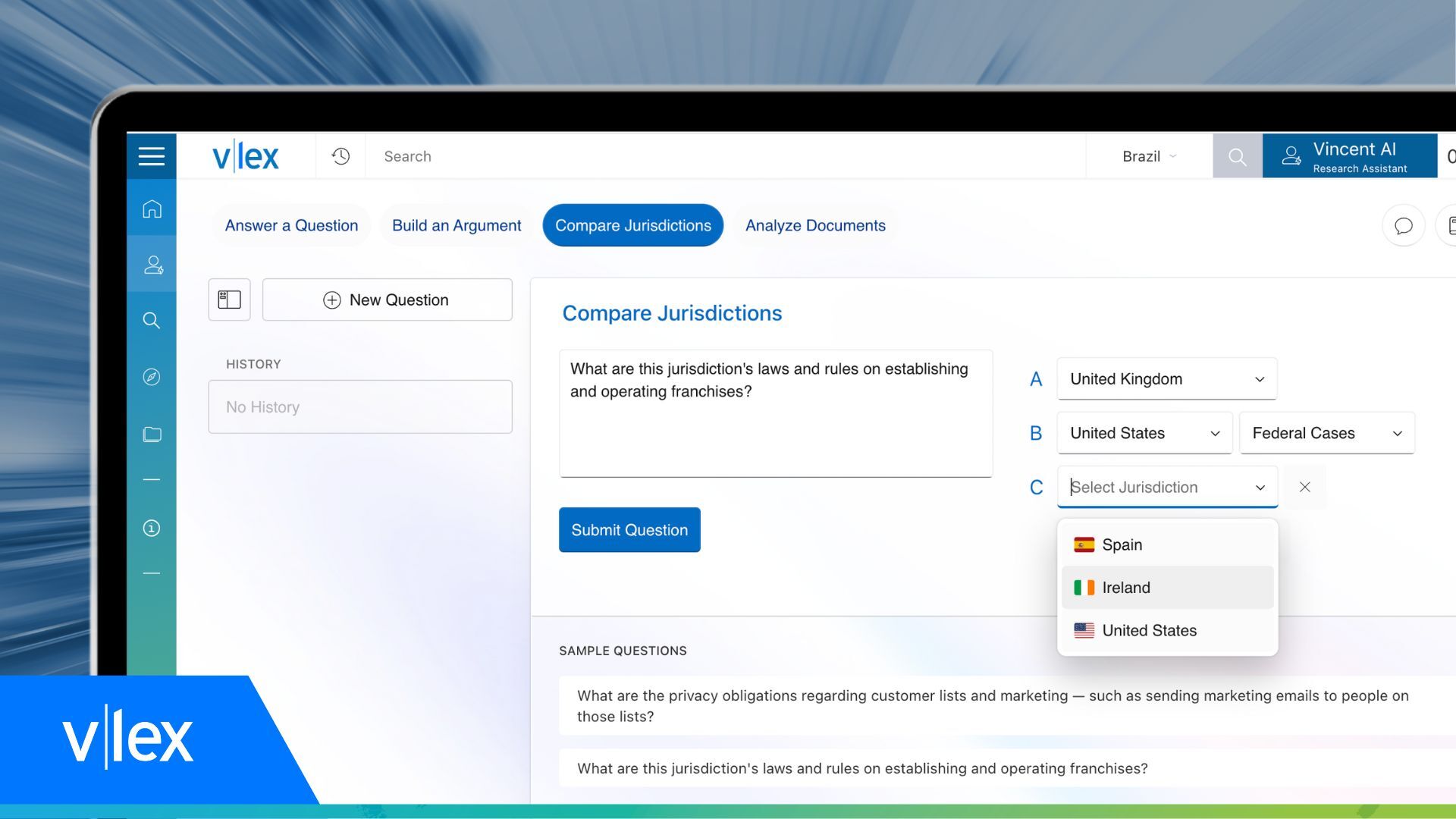vLex releases new generative AI legal assistant

Screenshot of vLex Vincent interface.
Legal technology company vLex rolled out an upgrade to its Vincent AI software Tuesday, announcing a new generative artificial intelligence chatbot that can create first-draft research memos, legal arguments and quick summaries of documents.
According to a vLex news release, the new suite of AI tools includes interactive features that will allow lawyers to get answers to legal questions with citations and links from verified sources. In addition, the software has a build-an-argument tool that will allow lawyers to “formulate compelling arguments, support propositions, counter opposing views and even anticipate counterarguments,” according to vLex.
Among other features, the assistant allows users to compare laws in multiple jurisdictions, including those of the United States and different countries. Legal professionals can drag and drop documents into the software to find legal precedents. The software can also spot and summarize legal issues, according to vLex. There is a Vincent AI add-on that allows users to access the software while writing inside Microsoft Word.
According to the news release, legal professionals can currently only beta-test the tools by invitation, but the software will be rolled out to more users in the coming months.
VLex chief strategy officer Ed Walters says the company expects to beta-test the product with fewer than 20 law firms. He says the AI legal assistant can already cite laws in the U.S., U.K., Ireland and Spain. With more jurisdictions to follow over the next two years, the software is both multinational and multilingual, Walters says.
“You can search in Spanish. You can search the Spanish library in English and get back results in English,” Walters tells the Journal.
In the United States, legal professionals can create memos that include direct citations and links to verified sources from software called Cert, created by Fastcase, the legal technology company Walters co-founded.
In April, Fastcase and vLex announced that they had merged into a new entity called the vLex Group to combine their subscriber bases and vast troves of data. At that time, the companies said the merged company would create a new law library that would include data from more than 100 countries.
The release of OpenAI’s chatbot ChatGPT in November 2022 has captured the public’s imagination, and legal professionals and lawyers are among those riding the new wave of interest.
Some in the profession are turning to AI to speed up common legal tasks like research and document review. GPT-based platform Harvey is one solution aimed at legal professionals and law firms. Another is Casetext’s CoCounsel. In addition, Thomson Reuters and LexisNexis announced generative AI products earlier this year.
However, with the new tech has come concerns about its efficacy, including a quirk that can make it “hallucinate” or produce inaccurate answers that sound convincing.
But according to vLex, Vincent AI produces answers with “no hallucinations” because it draws “only from real cases and real legal materials.”
Rather than creating answers out of whole cloth, the legal assistant will instead say it doesn’t know the answers to some legal questions, Walters says.
In a sign of what can go wrong with AI in the legal profession, a New York lawyer in March relied on ChatGPT to create citations in a brief filed in New York federal court.
“He ran this search in ChatGPT and got hallucinated answers and hallucinated cases and got sanctioned for it,” Walters says. “But if he had run that search in Vincent AI, he would have got the answer that he was looking for, supported by actual cases.”
Write a letter to the editor, share a story tip or update, or report an error.



